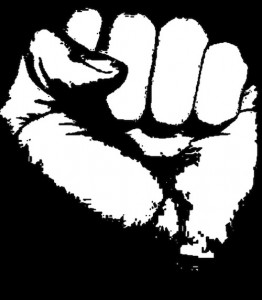your own cognitive revolution
 |
“The world as we have created it is a process of our thinking. It cannot be changed without changing our thinking.”
—Albert Einstein
|
The cognitive revolution is a multi-dimensional development in intellectual history that grew out of inter-disciplinary conversations during the 1950s and 1960s between psychology, philosophy, linguistics, computer science and anthropology. One major outgrowth of this revolution is information theory—the ideas and knowledge concerning how information (broadly defined) is organized in the universe and how human beings process and use it. Advances in information theory over the past 50 years are in large part responsible for the awe-inspiring developments that have occurred in two of the most important fields of modern study: nanotechnology and neuroscience.
Fascinating stuff to be sure. But what do I mean by YOUR OWN cognitive revolution?
your patterns of thinking influence…everything
What is cognition? Cognition is extraordinarily complex, but for our purposes here let’s just say it is synonymous with “human thinking.”
Most of our thinking is automatic: recurrent thoughts pop into our minds relentlessly and those thoughts impact how we feel emotionally and what we do behaviorally. Here are examples of thought patterns that lead to certain emotional and behavioral patterns:
DESTRUCTIVE PATTERNS
| thought patterns | emotional patterns | behavioral patterns |
|
|
|
CONSTRUCTIVE PATTERNS
| thought patterns | emotional patterns | behavioral patterns |
|
|
|
cognitive behavioral therapy in nyc
Cognitive behavioral therapy (CBT) grew primarily out of Aaron Beck’s development of Cognitive Therapy. The central premise of these and other cognitive approaches (DBT; Schema; ACT) is that our power to influence reality (internally and externally) starts with understanding and making purposeful and conscious choices about our own thinking patterns (i.e. our perspectives, beliefs, attitudes, narratives, etc.). In fact, thinking about our thinking in ways that are smart, constructive and creative is one of the highest leverage things we can learn to do if we are interested in personal growth and healthy relationships.
When clients see me for therapy in NYC for codependency, relationship problems, anxiety and anger management issues—we often discuss what it means to take responsibility for the activity of our own minds and why failing to do so leaves us vulnerable to being controlled by (a) our histories; (b) other people’s agendas; and (c) the ideas, images and messages relentlessly directed at us by consumerism and other soul-crushing cultural forces.
contemporary mindfulness and therapy in nyc
A central principle of therapy for an increasing number of therapists in NYC (and beyond) is that our lives and relationships can be greatly enriched by cultivating the skills and habits of contemporary mindfulness:
- pausing and paying conscious attention to what we are thinking, feeling and doing
- identifying and neutralizing our automatic/destructive thinking/emotional patterns
- choosing more constructive, helpful and creative ways of thinking about “reality”
Practicing contemporary mindfulness is a lifelong creative endeavor like learning to play the piano or to master a martial art. Of course mastery in anything worthwhile requires not only a burning desire to get good at whatever it is you are pursuing, but also daily practice. And here’s a secret about mastery: if you fall in love with the repetitive/monotonous activity of practice, the rewards will be extraordinary, over time. However, if you indulge in constant craving for the rewards, hating the fact that daily practice is a requirement, then mastery will elude you forever. You must learn to find gratification in the practice.
your eternal (cognitive) revolution
| “The mind is not a vessel to be filled, but a fire to be kindled.” —Plutarch
|
As in any revolution you need to know who (or what) you are fighting for and against.
fighting against
I tend to think that one of the primary enemies we encounter on the path of personal growth is best thought of as the demon of forgetfulness, that aspect of consciousness where human beings forget to use their own power in constructive and creative ways. Whether we like it or not, it takes consistent work and effort for us to remember that we do have the power/capacity to make choices in how we want to think about and respond to reality.
This type of remembering is so important because it counter-acts the automatic thinking many of us developed during childhood: a psychological/emotional default setting whereby we process information and see life through a lens of negativity, pessimism and fear. This, of course, leads to further automatic patterns of thinking and behavior that leads to imbalance and disharmony in our lives—internally and externally.
fighting for
And what are we fighting FOR in this eternal cognitive revolution? I’d say (along with Buddhist philosophy) that we seek liberation and freedom (within ourselves), healthy and harmonious relationships (with others) and more peace, justice and compassion (in the world). Thus, pursuing a cognitive revolution is not a temporary uprising or a weekend protest—it is a life-long commitment to improving the world, including the small slice of it that is your life.